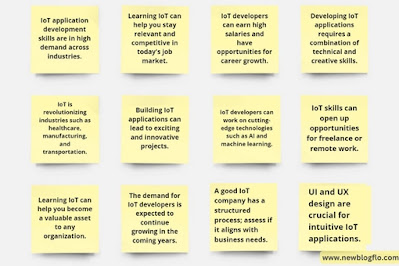All Drivers Insurance: Comprehensive Coverage for Everyone
All Drivers Insurance is essential for any car owner. In this article, we will discuss the importance and different types of coverage available to ensure protection on the road.
1. All Drivers Insurance—Necessary Roadside Protection
All Drivers Insurance is necessary for any driver on the road. With comprehensive coverage, you are assured that you are covered for any damages or medical expenses resulting from an accident.
All Drivers Insurance offers a secure layer of protection that can aid in the protection of your finances in the event of an accident, regardless of who is at fault. Invest in All Drivers Insurance today to obtain the necessary peace of mind.
2. Liability Insurance
Liability insurance is one of the most important types of insurance for drivers to have. It covers the cost of any damage or injury that the driver may be responsible for in an accident.
It is important for drivers to understand their state's requirements for liability insurance and to make sure that they are covered. Having the right amount of liability coverage can help protect drivers from financial hardship if they are ever involved in an accident.
3. The Risks and Consequences of Driving Without Insurance
Driving without insurance can also increase your chances of getting into an accident. Uninsured drivers are three times more likely to get into a car accident than those who have insurance.
This is because they're more likely to drive or be under the influence of alcohol or drugs. If you're convicted of driving without insurance, you'll face fines and penalties that will affect your driving record and your wallet.
You could also be subject to jail time if you've been convicted of this crime several times. There are many reasons why it's important to have car insurance.
Not only do you protect yourself against financial losses in the event of an accident, but you also protect other drivers and passengers on the road.
4. Personal Injury Protection (PIP) Coverage
In many states, PIP coverage is mandatory, so it is essential to know what your policy covers and what limits apply. Additionally, it is important to understand the differences between PIP and liability coverage.
as they are two different types of insurance that serve different purposes. Knowing these differences can help you make an informed decision when choosing an auto insurance policy.
5. Uninsured Motorist (UM) Coverage
Uninsured motorist (UM) coverage is an important part of all drivers' insurance policies. Coverage can provide protection and financial help if you are injured in an accident caused by an uninsured motorist.
It can also provide coverage for medical expenses and lost wages if you are hurt by an uninsured driver. It is important to review your driver’s insurance policy and make sure you have adequate UM coverage to protect yourself and your family.
6. Collision Damage Waiver (CDW) Coverage
Collision Damage Waiver (CDW) is optional insurance coverage that can be added to a driver's policy. With CDW, the driver is covered for damage to their vehicle resulting from an accident or other covered events.
This coverage also includes liability for third-party damage or injuries that may occur. CDW can be a valuable addition to any driver's policy, providing them with peace of mind knowing that their vehicle and the people they share the road with are protected.
1. Liability Coverage
Provides protection for you and your passengers in the event that someone is at fault for an accident.
2. Loss of Use Coverage
Covers your vehicle if it is damaged, so you cannot use it for transportation, such as when it is towed away or requires extensive repairs.
3. Personal accident insurance
If you are injured in an accident, your insurance will pay for your medical bills and missed income.
4. Personal Effects Coverage
Covers personal belongings in the car, such as clothes, jewellery, and medications, if they are damaged in an accident.
5. Uninsured Motorist Protection
Provides financial help if you are injured by an uninsured driver.
6. Towing and Labour Coverage
It protects you if your car is towed or needs to be repaired while it is being driven elsewhere.
7. Medical Payments Coverage
Medical payment coverage is an important part of all drivers' insurance policies. This type of coverage helps provide financial protection for medical expenses if you or your passengers are injured in an accident.
It can also help cover the costs of funeral expenses in the event of a death. Medical payment coverage may also help with some legal expenses if you are sued as a result of an accident.
It is important to understand the specifics of each policy to determine the amount of coverage that is appropriate for your situation.
7. Comprehensive Coverage
Comprehensive coverage is a type of insurance that provides a wide range of protection for drivers. It covers damages to the vehicle, regardless of fault, in the event of incidents such as theft, vandalism, floods, hail, fire, and other non-collision events.
It can also cover additional costs such as towing and labor costs. Comprehensive coverage is often combined with collision coverage to provide drivers with the most comprehensive level of protection. for example:
- Damage to your vehicle from a fire
- Theft of your vehicle
- Vandalism, such as someone keying your car
- Damage from hitting an animal, such as a deer
- Damage from a natural disaster, such as a tornado or hurricane
- Glass breakage, such as a rock hitting your windscreen
- Damage from falling objects, such as a tree branch
-
It's worth noting that not all comprehensive policies cover all these events, and coverage and exclusions can vary between insurance providers
Additionally, some events may need extra endorsements, or riders, to be added to your policy to be covered
8. Towing and Rental Car Insurance
Towing and rental car insurance can be a vital part of a driver's insurance policy. This coverage can be helpful in the event of a breakdown or an accident, as it can cover the cost of towing the vehicle to the nearest qualified repair facility.
as well as providing access to a rental car while repairs are being made. It's important that drivers understand the details of their policy and what it covers, so they can make informed decisions about their insurance protection.
1. Comprehensive Towing and Rental Car Insurance
Many drivers are now choosing to insure their cars with comprehensive towing and rental car insurance, which provides coverage for towing services and rental cars in the event of an accident or breakdown.
This type of insurance is often an affordable option that can provide peace of mind to drivers who need reliable coverage in case their car is unable to be driven.
With comprehensive towing and rental car insurance, drivers can also enjoy reduced rates on rental cars and lower costs for tow trucks.
2. Collision Towing and Rental Car Insurance
One of the most important aspects of having car insurance is making sure that you are covered in the event of a collision. Collision towing and rental car insurance are essential components of any comprehensive driver's insurance policy.
With these services, you can be assured that any costs associated with your vehicle's recovery and repair, or with a rental car for transportation during the repair period, will be covered by your insurance provider.
This coverage is especially important for drivers who live in areas with unpredictable weather conditions or where driving conditions can be hazardous.
3. Progressive Liability Towing and Rental Car Insurance
Towing liability and rental car insurance are both required components of any all-drivers insurance policy. Liability towing insurance protects drivers if they need to be towed due to an accident or mechanical breakdown.
while rental car coverage helps cover the costs of renting a vehicle while the insured vehicle is being repaired. Both types of insurance can provide peace of mind and help protect drivers in the event of an unexpected incident on the road.
4. Personal Injury Protection (PIP), Towing, and Rental Car Insurance
Personal Injury Protection (PIP) insurance is a type of insurance coverage for all drivers that provides reimbursement for medical and related expenses incurred in the event of an accident.
PIP coverage also includes towing and rental car fees, giving drivers extra peace of mind in the event of an accident. With PIP insurance, drivers can rest assured that they are protected and covered in the event of an accident.
5. Uninsured/Underinsured Motorist Coverage Towing and Rental Car Insurance
All drivers should consider uninsured/underinsured motorist coverage for their vehicle insurance. This coverage protects drivers from those who are on the road without insurance and can help cover damages from an accident caused by an uninsured driver.
Additionally, it is important to consider towing and rental car insurance if you do not already have this coverage. Towing and rental car insurance can help cover the cost of towing in the event of a breakdown or accident.
as well as provide a replacement vehicle if needed. Having this coverage can be invaluable if you are ever in an unexpected situation involving your vehicle.
6. Medical Payments Insurance, Towing Insurance, and Rental Car Insurance
Medical payment coverage, towing, and rental car insurance are all important aspects of any comprehensive auto insurance policy. Medical payments' coverage helps to cover medical bills for you and your passengers if an accident occurs.
Towing and rental car insurance can help cover the costs of getting your vehicle towed if an accident takes place, as well as the costs associated with renting a vehicle if yours is inoperable.
By purchasing a comprehensive auto insurance policy, drivers can have peace of mind that their cars and their wallets are protected in the case of an accident.
7. GAP Coverage: Towing and Rental Car Insurance
GAP coverage, towing, and rental car insurance are important aspects of all drivers insurance. GAP coverage is designed to cover the difference between the amount still owed on a car loan and the amount paid by an insurance company if the car is totalled or stolen.Towing and rental car insurance helps reimburse drivers for costs associated with towing or renting a vehicle for a certain period of time if their vehicle needs to be repaired or replaced after an accident.
It's important for all drivers to understand these types of coverage so they can make an informed decision when selecting their auto insurance policy.
9. Medical Expenses Coverage
Medical Expenses Coverage is a key component of any all drivers insurance policy. This coverage helps to protect drivers in the event of an accident by covering the medical costs associated with injuries and medical treatments.
It may also cover lost wages or other costs associated with the injury. All drivers insurance policies should include this coverage to ensure that you are fully protected in the event of an accident.


%20Coverage.webp)
%20Coverage.webp)




